For the rest of the regular season and postseason, Hoops Rumors is taking a closer look at players who will be free agents or could become free agents during the 2024 offseason. We consider whether their stock is rising or falling due to their performance and other factors. Today, we’re focusing on a handful of players from the Central Division.
- 2023/24: $9,835,881
- 2024/25: RFA
- Stock: Neutral
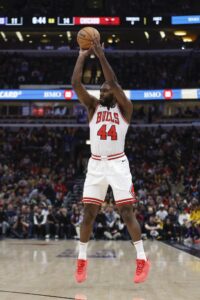 The Bulls are in a tricky spot with Williams, whose season ended early when it was announced in February that he would undergo foot surgery that would sideline him for the remainder of ’23/24. He’ll be a restricted free agent if Chicago gives him a $12.97MM qualifying offer, which should be a lock.
The Bulls are in a tricky spot with Williams, whose season ended early when it was announced in February that he would undergo foot surgery that would sideline him for the remainder of ’23/24. He’ll be a restricted free agent if Chicago gives him a $12.97MM qualifying offer, which should be a lock.
Still just 22 years old, Williams is a former No. 4 overall pick who has shown glimpses of tantalizing two-way upside over his first four seasons. The problem is, those glimpses have been fleeting and have never been sustained for a prolonged period of time.
In fairness to Williams, injuries have certainly played a role in his up-and-down play — while he played 71 games as a rookie and all 82 games in 2022/23, he was limited to just 17 games in ’21/22 due to a wrist injury and only made 43 appearances this season due to foot and ankle issues.
I’m sure the Bulls would have loved for Williams to have a breakout season in ’23/24 and cement his place as a cornerstone to build around going forward. But his averages — 10.0 PPG, 3.9 RPG, 0.9 SPG and 0.8 BPG on .443/.399/.788 shooting in 43 games (27.3 MPG) — were basically in line with his career numbers. Not better or worse, just neutral.
Williams has a high ceiling on both ends of the court due to his size, length, athleticism and skills. His production hasn’t matched his talent level to this point though, and there are a wide range of outcomes for what his next contract could look like, depending on how much external interest he draws as a RFA.
- 2023/24: $8,920,795
- 2024/25: RFA
- Stock: Up
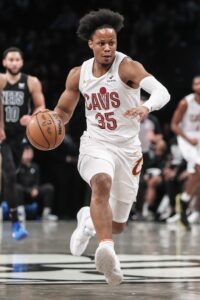 Okoro was selected with the No. 5 overall pick in 2020 — right after Williams. And as with Williams, Okoro showed glimpses of being a productive rotation regular for Cleveland during his first three seasons.
Okoro was selected with the No. 5 overall pick in 2020 — right after Williams. And as with Williams, Okoro showed glimpses of being a productive rotation regular for Cleveland during his first three seasons.
So why is Okoro’s stock up and Williams’ stuck in neutral? The answer is subjective of course, but part of it has to do with expectations.
After playing a career-low 21.7 minutes per game last season, Okoro is up to 27.2 MPG in ’23/24, and he has played well both as a starter and as a reserve. Overall, he’s averaging 9.7 PPG, 3.2 RPG, 2.0 APG and 0.9 SPG on .498/.399/.686 shooting in 57 games, including 34 starts.
The 23-year-old has improved in the area most critical to his development: three-point shooting. His 39.9% mark from deep is a career high, and he’s Cleveland’s best perimeter defender.
Like Williams, Okoro will be a restricted free agent in the offseason if he’s tendered a qualifying offer. Given the Cavs’ salary cap situation, I don’t expect him to receive much more than the mid-level exception, which is projected to be worth about $13.8MM annually on a four-year deal.
Okoro’s future with Cleveland was looking a little shaky last summer after the team acquired Max Strus and re-signed Caris LeVert. But he has become more decisive and effective on offense on top of being an already-strong defender, and I’d be very surprised if the Cavs didn’t keep him around in the offseason.
- 2023/24: $3,196,448 (minimum salary; $2,019,706 cap hit)
- 2024/25: UFA
- Stock: Down
Now in his 12th NBA season, Crowder has far exceeded the careers of most second-round picks (he was selected No. 34 overall back in 2012). But he also appears to be at the tail end of his career.
The 33-year-old’s lengthy holdout with Phoenix last season was one of the more bizarre decisions for a player who was about to become a free agent. He was eventually moved to Milwaukee — his preferred destination — but at a significant cost: he made $10.2MM in ’22/23, and re-signed with the Bucks on a one-year, minimum-salary contract last summer.
Crowder hasn’t shown anything this year to prove he’s worth more than the veteran’s minimum going forward, averaging 6.1 PPG and 3.4 RPG on .421/.353/.692 shooting. He has only appeared 36 games (23.8 MPG), having missed 31 games early in the season after suffering a left adductor and abdominal tear, which required surgery.
Perhaps things will change if Crowder has a strong playoff performance, but to my eyes, he’s at least a half-step slower on defense than he used to be, and that was always his calling card. At his age, it’s rare for that trend to reverse.
- 2023/24: $5,043,773
- 2024/25: $5,417,386 player option
- Stock: Up
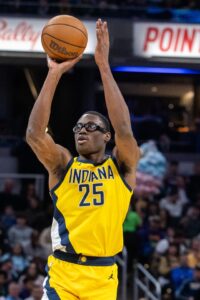 Smith, who turns 24 years old today (happy birthday), is actually the third former lottery pick from 2020 on this list, as he was selected No. 10 overall in the same draft as Williams and Okoro. However, he has had a much different NBA path than his fellow draftees.
Smith, who turns 24 years old today (happy birthday), is actually the third former lottery pick from 2020 on this list, as he was selected No. 10 overall in the same draft as Williams and Okoro. However, he has had a much different NBA path than his fellow draftees.
Smith didn’t play much for the team that selected him, Phoenix, and the Suns declined their third-year team option on his rookie scale contract in 2021. He was traded to Indiana in February 2022, eventually re-signing with the Pacers on a three-year, $15.1MM deal with a player option for the final season.
In 2022/23, which was Smith’s first full season with the Pacers, it seemed like the team was a little unsure about how best to utilize him. He opened the season as the starting power forward, but it was an awkward fit on both ends of the court, and he was eventually moved to the bench, mostly playing backup center. Overall, he averaged 9.4 PPG, 5.8 RPG and 0.9 BPG in 68 games (18.8 MPG).
Smith’s counting stats in ’23/24 — 10.4 PPG, 5.6 RPG and 0.6 BPG in 47 games (17.7 MPG) — are very similar to last season’s. There’s one huge difference though: he has been one of the most efficient offensive players in the NBA.
After posting a below-league-average 56.5 true shooting percentage in ’22/23, Smith is at 70.7 TS% in ’23/24, more than 12% above league average. He’s shooting 71.8% on twos and 44.2% on threes.
Given his elite offensive efficiency, decent defense, and age, it’s hard to imagine he’ll pick up his $5.42MM player option. The big man market is pretty thin in 2024, and Smith is in line for a raise — the two-year, $16MM deal Moritz Wagner signed with Orlando last summer should be his floor.
The Pacers will have cap room and Smith’s Early Bird rights if they want to bring him back. But they also have to pay Pascal Siakam, and third-year center Isaiah Jackson will be entering the final year of his rookie scale deal. Money could be a sticking point in negotiations.
 The Bulls are in a tricky spot with Williams, whose season ended early when it was announced in February that he would undergo
The Bulls are in a tricky spot with Williams, whose season ended early when it was announced in February that he would undergo  Okoro was selected with the No. 5 overall pick in 2020 — right after Williams. And as with Williams, Okoro showed glimpses of being a productive rotation regular for Cleveland during his first three seasons.
Okoro was selected with the No. 5 overall pick in 2020 — right after Williams. And as with Williams, Okoro showed glimpses of being a productive rotation regular for Cleveland during his first three seasons. Smith, who turns 24 years old today (happy birthday), is actually the third former lottery pick from 2020 on this list, as he was selected No. 10 overall in the same draft as Williams and Okoro. However, he has had a much different NBA path than his fellow draftees.
Smith, who turns 24 years old today (happy birthday), is actually the third former lottery pick from 2020 on this list, as he was selected No. 10 overall in the same draft as Williams and Okoro. However, he has had a much different NBA path than his fellow draftees.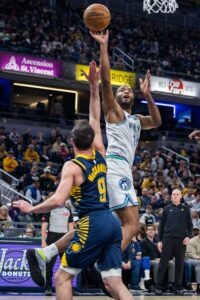 1:02pm: The Timberwolves are bringing back forward
1:02pm: The Timberwolves are bringing back forward 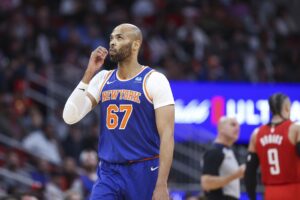 MARCH 15: Veteran big man
MARCH 15: Veteran big man 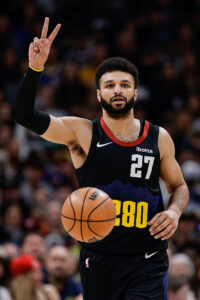 A player is permitted to fall short of the 20-minute threshold twice and still have the game count toward his minimum as long as he logs at least 15 minutes in those games. So a player who plays 20 minutes in 63 games and 15 minutes in two more contests would reach the 65-game minimum. However, any outing of less than 15 minutes would not count toward the minimum.
A player is permitted to fall short of the 20-minute threshold twice and still have the game count toward his minimum as long as he logs at least 15 minutes in those games. So a player who plays 20 minutes in 63 games and 15 minutes in two more contests would reach the 65-game minimum. However, any outing of less than 15 minutes would not count toward the minimum.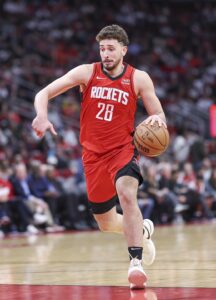 Murray would be eligible for a
Murray would be eligible for a